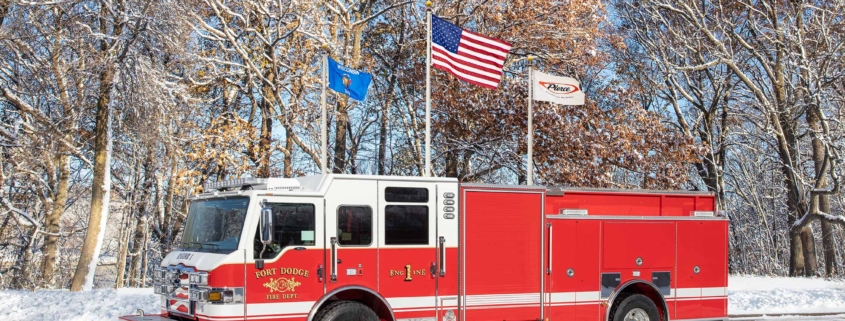Essential Insurance Coverage for Fire Departments
Fire departments play a significant role in ensuring the safety of a community. Not only do firefighters risk their lives to save people, pets and belongings, but they also provide valuable services and educational programming. Yet, these responsibilities come with risks that can threaten employee health and safety, the environment, department finances and operations. To address these exposures, fire departments need a comprehensive risk management plan that includes safety policies and procedures and a comprehensive insurance portfolio.
This article examines key risks fire departments face, describes common insurance coverages these organizations need and offers tips on customizing insurance programs.
Key Risks for Fire Departments
Fire departments face multiple risks inherent to their day-to-day operations. The hazardous conditions (e.g., burning buildings and exposures to toxic chemicals) firefighters encounter can cause property damage, injuries to personnel or third parties, and environmental harm, and these situations can lead to liability lawsuits. Additionally, these organizations must be prepared for disruptions caused by damage to their equipment or buildings, as these losses can occur through standard department functions (e.g., responding to calls) or natural disasters (e.g., floods and wind damage).
These risks can lead to financial loss through settlements, legal judgments, fines and business interruptions. Therefore, fire departments should have adequate insurance in place to mitigate potential exposures.
Common Coverage Needs of Fire Departments
With the multitude of risks fire departments are exposed to, they need insurance that meets their needs. Common types of coverage these employers should consider include:
- Auto liability may cover claims for bodily injury and property damage caused by fire department vehicles during emergency and nonemergency operations.
- Auto physical damage coverage provides financial assistance to repair or replace fire department vehicles damaged by collisions, vandalism or other incidents.
- General liability offers financial protection from legal costs, settlements and judgments related to third-party bodily injury or property damage claims arising from department operations (e.g., training exercises or public events).
- Environmental liability may cover claims of environmental damage through pollution or contaminating events from firefighting activities and their associated cleanup.
- Professional liability may cover lawsuits and settlements related to allegations of negligence, errors or omissions in fire department services (e.g., failure to adequately respond to an emergency).
- Workers’ compensation provides medical benefits and wage replacement for firefighters and other department employees who suffer work-related injuries or illnesses.
- Property insurance may financially protect against the cost to repair or replace department property (e.g., buildings and equipment) if they are damaged or destroyed by covered perils (e.g., fire, natural disasters and vandalism).
- Business interruption insurance compensates for lost revenue and extra expenses if operations are temporarily interrupted due to property losses, such as damage to the firehouse or equipment.
- Inland marine insurance may cover mobile equipment at risk of damage or loss because it is frequently moved or used off-site (e.g., portable firefighting equipment).
Depending on their needs, fire departments may obtain additional coverage, such as:
- Crime insurance to cover losses due to crimes committed by employees (e.g., fraud, embezzlement)
- Cyber insurance to cover data breaches or other cybersecurity events
- Excess liability insurance to cover claims that exceed other liability limits
- Employment practices liability insurance to cover claims of wrongful employment practices (e.g., harassment, discrimination and wrongful termination)
- Directors and officers insurance to cover the personal assets of directors and offers who make decisions on behalf of the department
Considerations for Customizing Insurance Programs
Each fire department has unique risks and insurance requirements, so several factors should be examined to ensure insurance portfolios are meeting specific needs. These include the size, location and operations of the department. Whether the department relies on volunteers is also an important variable. A thorough risk assessment can help identify distinct needs.
Employers should also consider working with specialized insurers and brokers experienced in providing coverage for emergency services. These professionals may be more familiar with the risks inherent in these operations and can provide more experienced guidance on how to address them. Fire departments should continually review and update their insurance policies. This is crucial to ensuring their coverage remains adequate as needs evolve.
Conclusion
Fire departments provide essential community services but face several risks. Having the proper insurance in place is an essential component of a risk management plan. Fire department leaders should continue to review and assess their insurance policies with their brokers to ensure they have the right coverage in place.
For additional risk management resources, contact us today.
| This Risk Insights is not intended to be exhaustive nor should any discussion or opinions be construed as legal advice. Readers should contact legal counsel or an insurance professional for appropriate advice. © 2024 Zywave, Inc. All rights reserved. |







Leave a Reply
Want to join the discussion?Feel free to contribute!